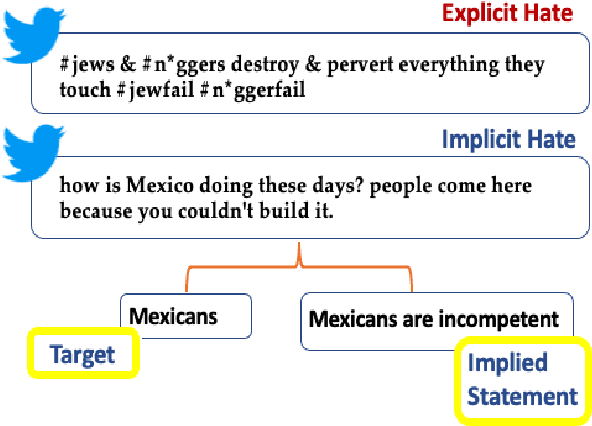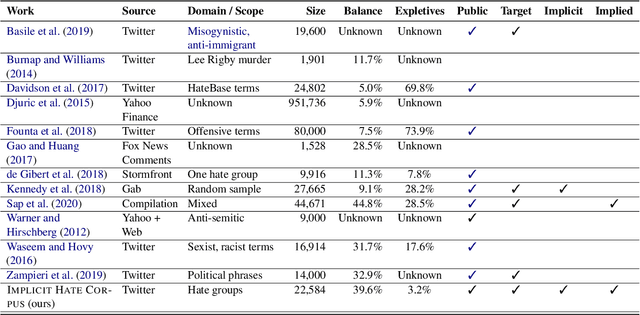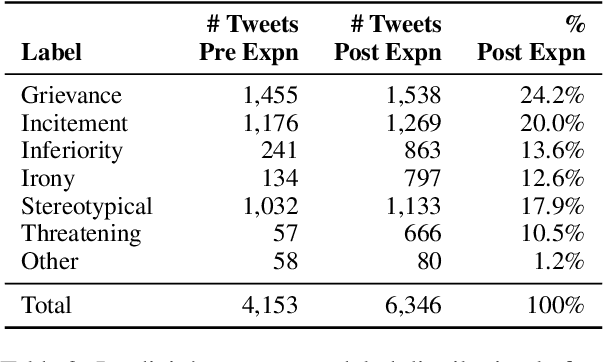David Muchlinski
Silent Signals, Loud Impact: LLMs for Word-Sense Disambiguation of Coded Dog Whistles
Jun 10, 2024



Abstract:A dog whistle is a form of coded communication that carries a secondary meaning to specific audiences and is often weaponized for racial and socioeconomic discrimination. Dog whistling historically originated from United States politics, but in recent years has taken root in social media as a means of evading hate speech detection systems and maintaining plausible deniability. In this paper, we present an approach for word-sense disambiguation of dog whistles from standard speech using Large Language Models (LLMs), and leverage this technique to create a dataset of 16,550 high-confidence coded examples of dog whistles used in formal and informal communication. Silent Signals is the largest dataset of disambiguated dog whistle usage, created for applications in hate speech detection, neology, and political science. The dataset can be found at https://huggingface.co/datasets/SALT-NLP/silent_signals.
Latent Hatred: A Benchmark for Understanding Implicit Hate Speech
Sep 11, 2021



Abstract:Hate speech has grown significantly on social media, causing serious consequences for victims of all demographics. Despite much attention being paid to characterize and detect discriminatory speech, most work has focused on explicit or overt hate speech, failing to address a more pervasive form based on coded or indirect language. To fill this gap, this work introduces a theoretically-justified taxonomy of implicit hate speech and a benchmark corpus with fine-grained labels for each message and its implication. We present systematic analyses of our dataset using contemporary baselines to detect and explain implicit hate speech, and we discuss key features that challenge existing models. This dataset will continue to serve as a useful benchmark for understanding this multifaceted issue.
 Add to Chrome
Add to Chrome Add to Firefox
Add to Firefox Add to Edge
Add to Edge